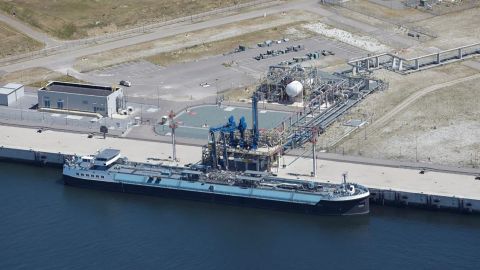A New Natural Gas Project in Mozambique Gives Locals All of the Costs and None of the Benefits
Recently The Guardian completed a five-month investigation into “carbon bombs,” or fossil fuel projects that would, over the course of their lifetimes, emit over one billion tons of carbon. The report revealed 195 planned oil and gas carbon bombs around the world. If they should proceed as planned, these projects alone would blow past internationally agreed-upon climate targets. For our third deep dive into carbon bombs, we take a look at the Rovuma Basin: a 39,767-square-foot region primarily off the coast of northern Mozambique. The Rovuma Basin is home to a $30 billion offshore liquefied natural gas project expected to emit one billion tons of carbon dioxide over the next three decades. Apart from its future impact on the global climate, this project has already damaged crucial surrounding ecosystems, displaced hundreds of families, and potentially worsened an armed insurgency that has been playing out in the region for years. While local Mozambicans have had to endure the project’s consequences, they have seen none of the jobs, money, or electrical power resulting from this project. Today we explore what is happening at the Rovuma Basin, how it is impacting the local community, and what a path forward might look like. With special guest Dr. Ruy Blanes, associate professor of global studies at the University of Gothenburg.



